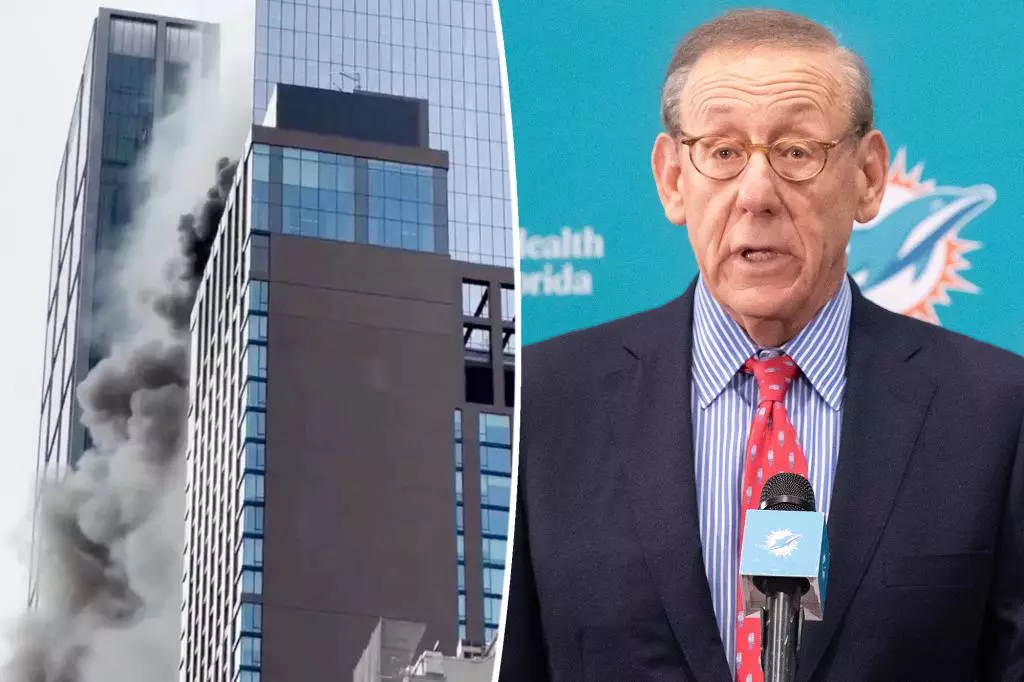In today’s fast-paced urban environments, the blend of luxury living and effective crisis management is not just desirable, but essential. The recent fire incident at The Set, a luxury residential skyscraper in Hudson Yards, highlights the repercussions of inadequate communication during emergencies. Owned by Related Companies—led by billionaire Stephen Ross—this ultra-luxe apartment complex boasts amenities designed to cater to affluent residents. However, the fire that erupted last week starkly exposed the cracks in its operational framework, leading to significant consequences, including the dismissal of its general manager.
The Event Unfolded: Fire and the Response
On an otherwise ordinary Thursday, a fire broke out during routine maintenance work on the building’s cooling tower around 11 am. First responders acted swiftly, deploying approximately 80 firefighters to manage the rapidly escalating situation. Thankfully, no injuries were reported, and the structure itself appeared to escape with negligible damage. Yet, the incident drew more attention for its glaring communication failures than for the fire itself. Residents reported a shocking absence of alarms and official notifications, leading some to discover the crisis through the spectacle of their neighbors engrossed in the scene across the street.
The dissatisfaction reached a boiling point as residents turned to their group messages for real-time updates, only to find themselves in a bizarre situation where information was being disseminated more effectively through social channels than from the property management.
The failure to adequately inform residents during the crisis speaks to broader issues that property management firms must address. A resident’s comment about the lack of alarms—a critical safety feature—raises serious questions about the building’s emergency protocols. The apparent disconnect between the management and the residents underlines a fundamental communication breakdown. Despite the luxurious attributes of The Set, including amenities likened to a “five-star hotel crossed with a techy workplace,” the management’s missteps jeopardized not only residents’ safety but also their peace of mind.
In a follow-up email acknowledging the “confusing experience,” management confessed their communication had “fallen short.” While such admissions can be a step towards accountability, the late response does little to assuage the anxieties experienced in real-time. Moreover, the decision to fire the general manager in the wake of the incident highlights the seriousness with which the property is treating this internal failure.
This incident serves as a cautionary tale for other luxury residential spaces. While high-end amenities draw residents in, the true test of governance becomes apparent during crises. Particularly in urban areas like New York City, where residents expect prompt action and transparent communication, a lapse can have a ripple effect on trust and satisfaction levels. The importance of clear and effective communication cannot be overstated—especially when lives may be at stake.
The fire’s aftermath also raises questions about the responsibilities of property owners and managers. Stephen Ross, while primarily recognized for his involvement in grand real estate developments such as the Time Warner Center and Hudson Yards, now faces scrutiny regarding the operational management of his properties. As the owner of Related Companies, amidst ambitious plans for further developments, it becomes incumbent upon him to ensure similar crises do not unfold in the future.
In the wake of the fire, The Set has a crucial opportunity to reassess and revamp its crisis management protocols. Establishing robust communication practices, particularly during emergency situations, is essential for safeguarding resident wellbeing and trust. Additionally, technological solutions, such as emergency alert systems and regular safety drills, can enhance the preparedness of luxury apartments, reinforcing that even amidst unprecedented incidents, the safety and transparency assured to residents remain paramount. Only by recalibrating their approach can luxury properties like The Set continue to navigate the intersection of affluence and accountability in urban living.

